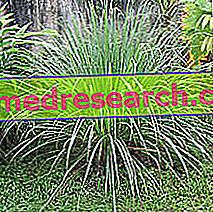Definition
We talk about "gastroesophageal reflux disease" when the contents of the gastric cavity - liquid or solid - rise up into the esophagus: the partially digested material is generally acidic, therefore it can irritate and / or damage the mucous membrane of the esophagus generating erosive or non-erosive esophagitis erosive.
Causes
Gastroesophageal reflux diseases are caused by: dysfunction of the cardia (lower esophageal sphincter), prolonged stagnation of food in the gastric cavity with consequent slow emptying, and incorrect functioning of peristalsis.
Symptoms
Multiple symptoms related to gastroesophageal reflux disease: retro-sternal burning, dysphagia, inhalation of gastric contents in the trachea, pharyngitis, chronic inflammation of the vocal cords, irritation and burning behind the shoulder blades, also ulcerative lesions in the last section of the esophagus ( possible Barret's esophagus degeneration and odynophagia.
The extent of the lesions is directly related to the contact time of the acid contents of the stomach with the mucosa of the esophagus.
Natural Care
Diet and Nutrition
Information on Gastroesophageal Reflux - Drugs for the Treatment of Gastroesophageal Reflux is not intended to replace the direct relationship between health professional and patient. Always consult your doctor and / or specialist before taking Gastroesophageal Reflux - Drugs for the Treatment of Gastroesophageal Reflux.
drugs
In the case of gastroesophageal reflux disease, the drugs are essential for complete recovery from the disease and to limit the damage due to contact of the gastric contents with the esophagus:
Proton pump inhibitors (antisecretives)
- Lansoprazole (eg. Pergastid, Lomevel, Lansox): it is recommended to take one 15 mg tablet once a day before the main meal, and to continue the therapy for at least 4 weeks.
- Omeprazole (eg Antra, Nansen) start therapy by taking one 20 mg tablet per day (before the main meal, for 4-8 weeks). When necessary, it is possible to increase the dosage to 40 mg / day, as described by the doctor. In some cases, maintenance therapy (10-20 mg / day) is required for a longer period.
- Rabeprazole (eg. Pariet): in the case of gastroesophageal reflux disease, take 20 mg of the drug orally (recommended dose for adults and children over 12), once a day after breakfast. It is recommended to continue the therapy for 4-8 weeks, according to what is prescribed by the doctor.
Histamine H2 receptor antagonists (antisecretives)
- Nizatidine (eg. Nizax, Cronizat, Zanizal) is recommended the dose of 150 mg of active ingredient twice a day. For children who have already reached the age of one and suffer from gastroesophageal reflux disease, it is recommended to administer 10 mg / kg per day divided into two doses, for 8 weeks. If the child is aged between 4 and 11, the recommended dose is 6 mg / kg per day, divided into two doses.
- Ranitidine (eg. Zantac, Ranibloc): administer one 150 mg tablet (orally) twice daily, or 50 mg intravenously or intramuscularly every 6-8 hours (adult dose).
ALGINATI (eg Gaviscon advance): antacids containing alginates are able to reduce reflux while protecting the esophageal mucosa; furthermore, the combination of antacids and alginates increases the viscosity of the gastric contents, protecting the mucosa of the esophagus from gastric reflux. The drug in question is an oral suspension of 100 mg of sodium alginate associated with 20 mg of potassium bicarbonate (per milliliter of product); take 5-10 ml of oral suspension after meals and at bedtime.
STIMULATING THE MOTILITY (prokinetics)
The administration of drugs capable of stimulating motility is recommended in the case of gastroesophageal reflux disease because it improves the function of the cardia and accelerates gastric emptying.
- metoclopramide (eg Plasil, Isaprandil): take 10-15 mg of the drug up to 4 times a day, at least 30 minutes before meals and lie down. Do not continue the treatment beyond 12 weeks. In children, administer orally, intravenously or intramuscularly 0.8 mg / kg per day divided into 4 doses.
- domperidone (eg. Motilium, Peridon): take one tablet (10 mg) 3-4 times a day before meals, for no more than 4 weeks.
Bench antacids
Over-the-counter antacids are not the drugs of choice for treating gastroesophageal reflux disease; however, their intake can sometimes lighten reflux symptoms, decreasing gastric acidity. They remember, for example:
- sodium bicarbonate (NaHCO 3 ): this substance acts quickly neutralizing acids, but has unpleasant side effects (alkalinization of urine, swelling, hypersodemia). The use of sodium bicarbonate should not be a common practice, rather it can be used to temporarily reduce the symptoms related to gastroesophageal reflux disease, after consulting a doctor.
- Calcium carbonate (CaCO 3 ): compared to the previous one, the drug has a longer duration of action. When calcium carbonate is taken for long periods, besides causing swelling, it can lead to constipation.
TRADITIONAL OR LAPAROSCOPIC SURGICAL THERAPY: useful in case of hiatal hernia coexistence or when the pharmacological therapy is not able to control the complications derived from gastroesophageal reflux diseases.
The following are some simple rules for the prophylaxis of gastroesophageal reflux disease:
- Abstention from smoking
- Increase physical activity
- Avoid alcoholic and carbonated beverages
- Avoid chocolate, coffee and hyperlipid foods
- Avoid going to bed after a meal
- Follow the rules dictated by food education
- Reduce weight (when necessary)
The change in the lifestyle of the patient suffering from gastroesophageal reflux, together with the use of drugs, is essential to decrease the severity of the symptoms and to completely recover from the disease.



